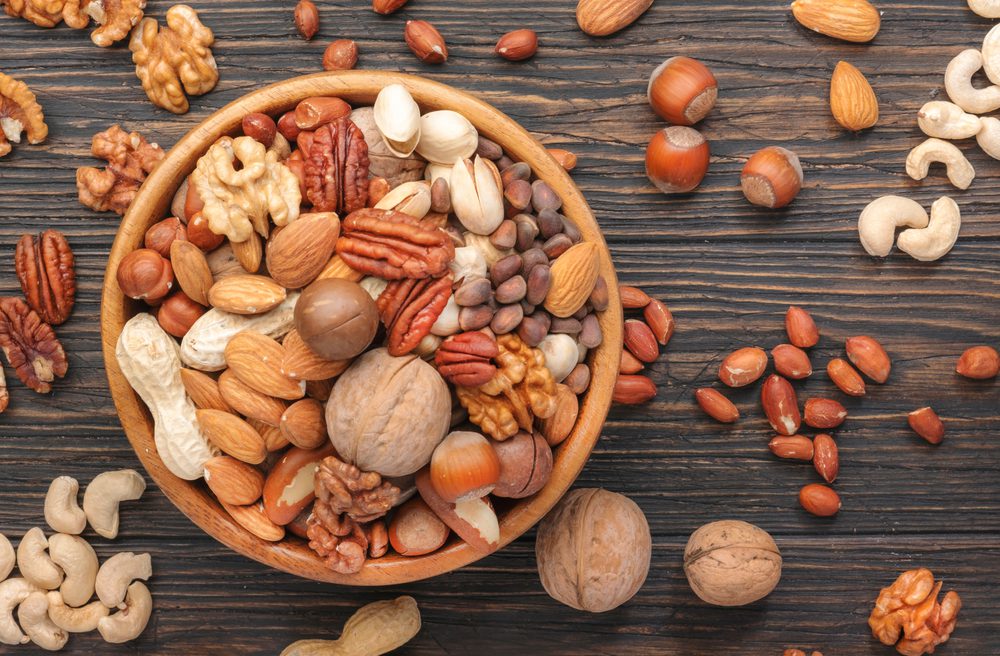These diabetes-friendly foods can help transform your life!
Maintaining a balanced diet is vital for those with diabetes, and incorporating diabetes-friendly foods into their everyday meals can make a considerable difference in managing this condition.
Diabetes-friendly foods have a minimal impact on blood sugar levels and can actually aid in stabilizing them. By choosing the right type of foods to eat, people with diabetes can regulate their blood sugar and reduce the risk of any further complications.
These foods aren’t just nutritious. They’re also delicious, making it easier to stick to a diabetes-friendly diet without feeling robbed. With our guidance, you’ll discover various options to diversify your diet while still prioritizing your overall health.
So whether you’re looking to manage your diabetes better or make healthier food choices, including these 8 diabetes-friendly foods in your daily meals can be a great step toward a healthier life.

Eggs
Regular egg consumption might be able to lower your heart disease risk in a few ways. This diabetes-friendly food can decrease inflammation, raise your good cholesterol levels, enhance insulin sensitivity, and modify the shape and size of your bad cholesterol.
A study performed in 2019 found that eating a high-fat, low-carb breakfast that includes eggs could help individuals with diabetes regulate blood sugar levels throughout their day.
Other research has also linked egg consumption with heart disease in those with diabetes.
But, a more recent review found that eating 6 to 12 eggs weekly as part of a nutritious diet didn’t increase heart disease risk factors in people with diabetes. Furthermore, some research indicates that consuming eggs might also reduce the risk of stroke.
Fatty fish
Salmon, herring, sardines, anchovies, and mackerel are fantastic sources of the omega-3 fatty acids EPA and DHA, which benefit your heart health.
Getting enough of these fats on a regular basis is particularly important for individuals with diabetes, who have an increased risk of stroke and heart disease.
DHA and EPA shield the cells that line your blood vessels, reduce inflammation, and can also help improve how your arteries function.
Studies show that people who eat this type of diabetes-friendly food have a lower risk of acute coronary syndromes, including heart attacks, and are less likely to perish from heart disease.
Research also shows that consuming fatty fish might also help regulate your blood sugar levels.
A study involving over 50 adults who were overweight or obese found that participants who ate fatty fish had substantial improvements in post-meal blood sugar levels than individuals who ate lean fish.
This diabetes-friendly food is also a great source of high-quality protein, which helps you feel fuller and aids in stabilizing your blood sugar levels.
Garlic
For its tiny size and low-calorie count, this diabetes-friendly food is incredibly healthy. Research shows that garlic contributes to enhanced blood glucose management and can help control cholesterol levels.
Even though many studies that specify garlic is a proven healthy option for diabetic people include abnormal dietary amounts, the meta-analysis cited below only included servings from 0.05 to 1.5 grams.
To get the full picture, a clove of garlic is about 3 grams. Research also suggests garlic can help reduce blood pressure and regulate cholesterol levels. One clove of raw garlic, which is approximately four calories, contains:
Manganese: 2% of the daily value
Vitamin C: 1% of the daily value
Vitamin B6: 2% of the daily value
Selenium: 1% of the daily value
Fiber: 0.06 grams

Greek yogurt
A long-term study concerning health data from over 100,000 participants discovered that a daily serving of this diabetes-friendly food was connected to an 18% lower chance of developing type 2 diabetes.
It can also help you lose weight if that’s a personal issue. Studies show that other dairy products may lead to improved body composition and weight loss in individuals with type 2 diabetes.
The high levels of protein, calcium, and a specific type of fat called conjugated linoleic acid found in yogurt can help keep you fuller longer. Moreover, Greek yogurt contains only 6 to 8 grams of carbs per serving. That’s lower than traditional yogurt.
It’s also higher in protein, which promotes weight loss by decreasing appetite and thus reducing calorie intake.
Avocados
Avocados have few carbs, less than a gram of sugar, a high fiber content, and healthy fats. So you don’t need to worry about your blood sugar levels being too high. Eating this diabetes-friendly food is also linked to improved overall diet and significantly lower body weight.
This makes avocados a fantastic snack for individuals with diabetes since obesity increases the chances of developing diabetes. On the contrary, they might have properties specific to preventing diabetes.
A study in mice found that avocatin B, a fat molecule found in avocados, hinders incomplete oxidation in the pancreas and skeletal muscle, which lowers insulin resistance.
More research is required in humans to confirm the connection between avocados and diabetes prevention. But so far, results look promising.
Strawberries
Strawberries are high in antioxidants called anthocyanins, which contribute to their red color. They also contain polyphenols, which are valuable plant compounds that have antioxidant properties.
A 2017 study discovered that a 6-week consumption of polyphenols from cranberries and strawberries enhanced insulin sensitivity in adults with weight issues who didn’t have diabetes. This is vital because low insulin sensitivity can cause blood sugar levels to skyrocket.
A cup of this diabetes-friendly food contains about 53 calories and 13 grams of carbs, three of which are fiber. It also provides over 100% of the reference daily intake for vitamin C, which gives you additional anti-inflammatory benefits for your heart health.
Extra-virgin olive oil
Extra-virgin olive oil has oleic acid, a type of monounsaturated fat that reduces fasting and post-meal triglyceride levels, improves glycemic management, and has antioxidant properties.
This is critical because people with diabetes have issues with managing blood sugar levels and have high triglyceride levels. Oleic acid might also stimulate the fullness hormone GLP-1.
In an extensive analysis of many different studies looking at fat, olive oil was the only one proven to reduce the risk of heart disease. This diabetes-friendly food also contains antioxidants called polyphenols.
Polyphenols protect the cells lining your blood vessels, reduce inflammation, keep oxidation from damaging bad cholesterol, and reduce blood pressure.
It’s unrefined, so it possesses antioxidants and other properties that make it healthy. Just be sure to pick extra-virgin olive oil.

Nuts
Nuts are not only delicious, but they’re also nutritious. Most contain fiber and are low in carbs, although some DO have more.
Studies on various nuts have shown that regular consumption has the potential to reduce inflammation and lower HbA1c, blood sugar, and harmful cholesterol levels. This diabetes-friendly food can also help those with diabetes improve their heart health.
A study involving over 15,000 participants with type 2 diabetes found that eating tree nuts, including almonds, walnuts, hazelnuts, and pistachios, reduced their risk of heart disease. Research even suggests that nuts can improve blood glucose levels.
Another study with individuals suffering from type 2 diabetes found that eating walnut oil daily enhanced blood glucose levels. This is important because those with type 2 diabetes frequently have elevated levels of insulin, which are connected to obesity.
If you don’t have any walnut oil in your home, Amazon has a fantastic variety. We especially recommend this AROMATIKA Walnut Oil.
How do you feel about these diabetes-friendly foods? Feel free to share your thoughts with us in the comments section. Meanwhile, those who suffer from diabetes can also benefit from reading: 8 Surprisingly Healthy Habits You Thought Were Bad






